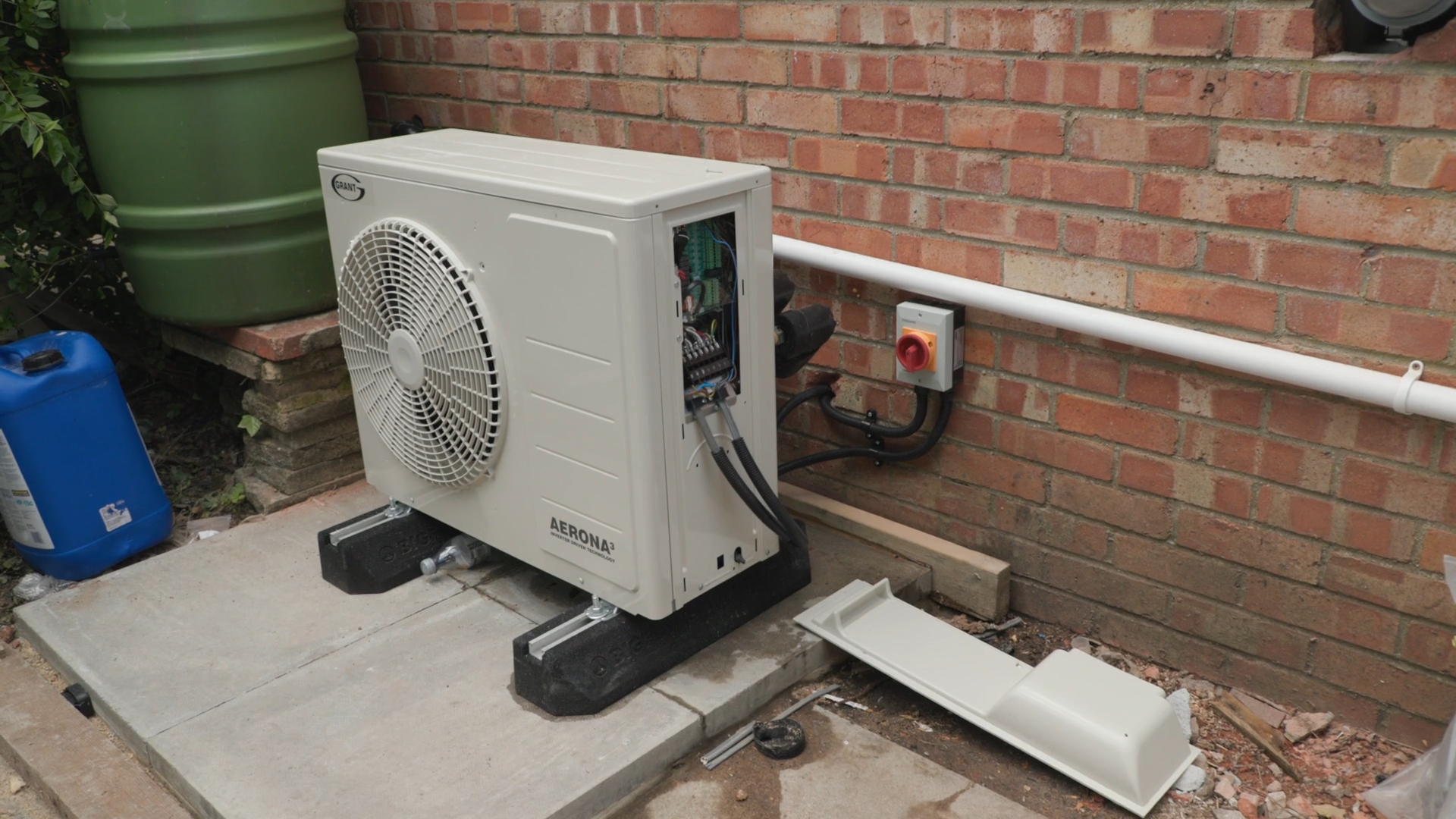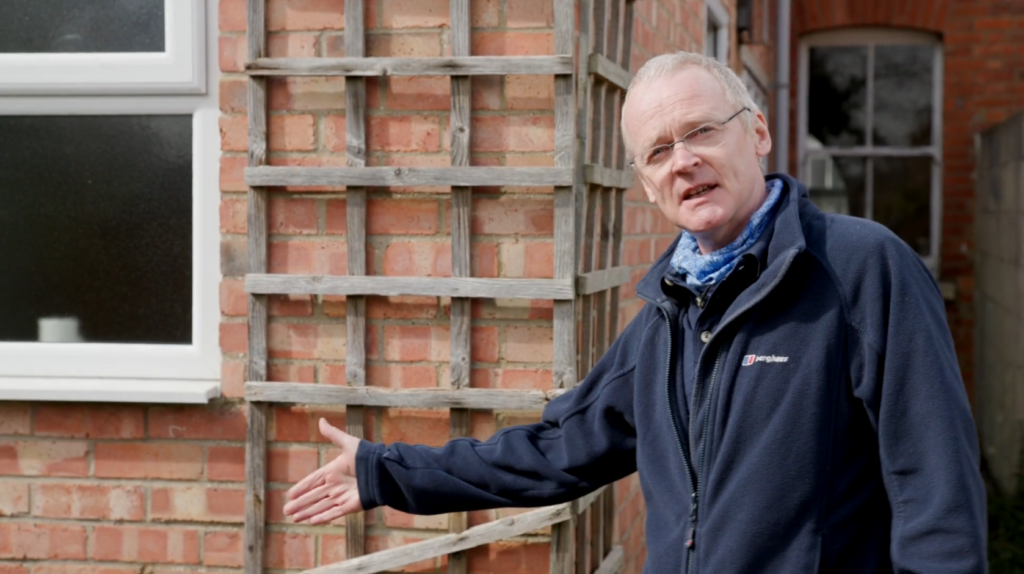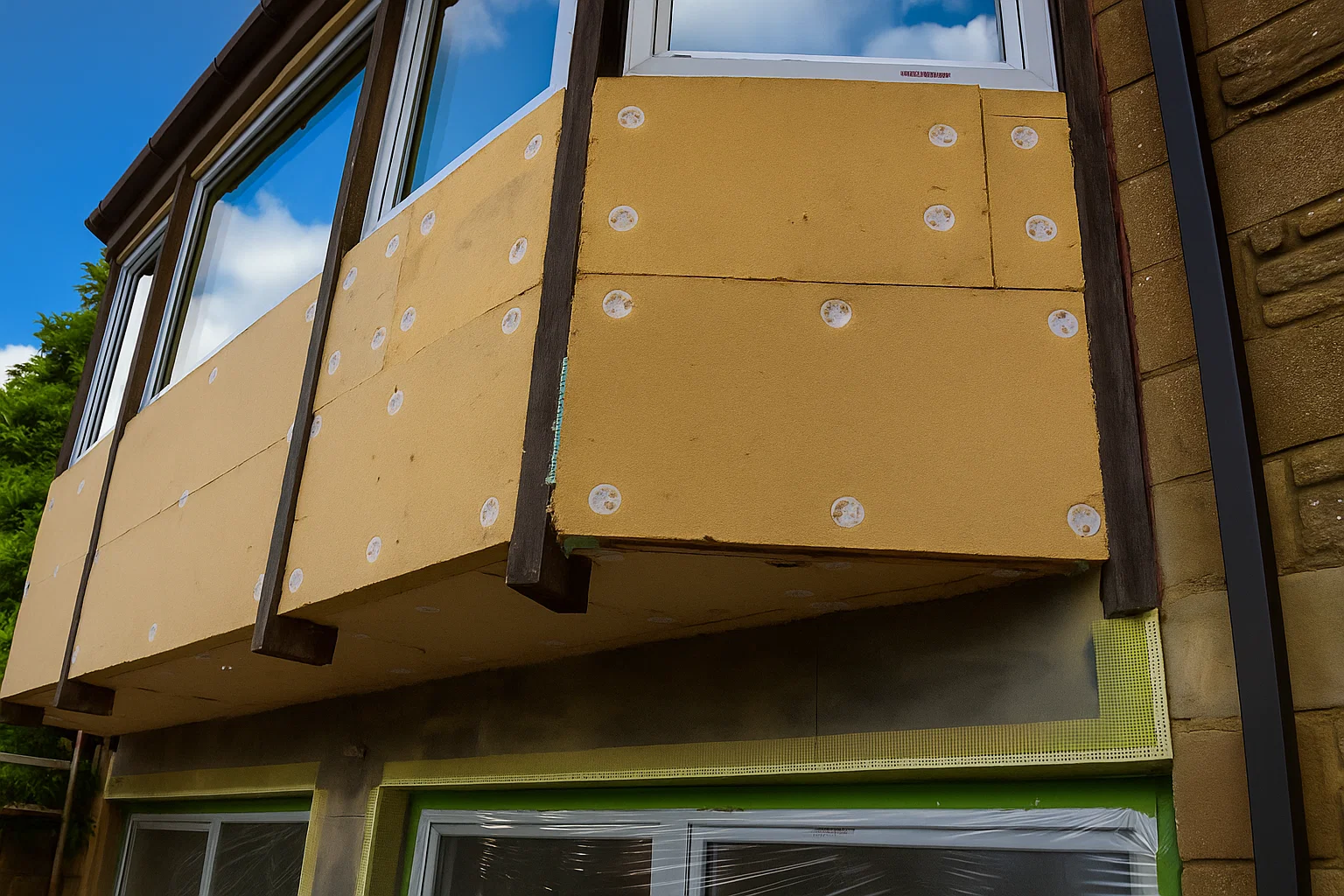
Heat pump FAQ: How loud is a heat pump?
If you’re thinking about installing a heat pump, one of the most common questions is: how much noise will it make?It’s a fair concern – especially if you’re planning long-term improvements and want your home to stay peaceful, indoors and out.
At Cosy Homes Oxfordshire, we’re here to help you make confident decisions – with clear information, local expertise, and a whole home view that helps every upgrade work better.
Here’s what to expect from today’s heat pumps – and how good planning and installation can make all the difference.
How loud is an air source heat pump?
Quiet, unobtrusive – and even quieter with proper installation
Modern air source heat pumps (ASHPs) are designed to operate with minimal disruption. Most produce sound levels between 40 and 60 decibels (dB) – depending on the model and how hard it’s working.
To put that into context:
- Around 40 dB – comparable to a quiet fridge
- Around 50–60 dB – similar to an air conditioning unit
- Above 70 dB – would be equivalent to a washing machine (well above typical ASHPs)
“Think of a heat pump like your fridge – only working in reverse. It’s familiar technology, just used differently.”
Geordie Stewart, Retrofit Scheme Manager

Most of the sound comes from the external unit, so when installed correctly, you’re unlikely to hear it from inside your home – or cause any disturbance to neighbours.
What about ground source heat pumps?
Yes – and barely noticeable
Ground source heat pumps (GSHPs) are even quieter. Because they draw heat from underground and don’t require a fan unit outside, they typically operate at 30 to 40 dB – quieter than a whisper.
If sound is a major factor in your decision, and you have the space for one, a ground source system could be a great fit.
What do the regulations say about heat pump noise?
In the UK, Permitted Development Rights allow most air source heat pumps to be installed without planning permission – provided they meet strict noise limits.
- The key threshold is 42 dB at the boundary of the nearest neighbouring home
- Recent updates to planning rules in England have relaxed restrictions even further – making installation easier while keeping systems neighbour-friendly
A good installer will make sure your system meets all the necessary requirements.
Tips for a quieter installation
To ensure your heat pump runs as quietly as possible:
- Choose the right location – place the external unit away from windows, corners, or enclosed spaces that could reflect sound
- Use a professional installer – mounting and insulation matter. Expert fitting minimises vibration and ensures a smoother performance
- Schedule regular maintenance – clean fans, well-lubricated parts, and regular check-ups help keep noise levels low
Is a heat pump right for your home?
Modern heat pumps are designed for comfort, efficiency – and quiet operation. But like any energy upgrade, they work best as part of a joined-up plan.
That’s where we come in.
At Cosy Homes Oxfordshire, we help you take the right steps in the right order. Our Whole House Plan looks at your home’s layout, insulation, ventilation, and energy use – so every improvement supports the next, and nothing’s left to guesswork.
We’re here to help you make smarter upgrades – with clarity, confidence, and the support of people who care.
Getting started
We’re here to help you make confident decisions about your home. Call our team on 0330 223 2742 , or send us a message to start your journey to a warmer, quieter, and more energy-efficient home.
Looking for more inspiration?

Historic Chadlington house reveals its story
Sandys House in Chadlington is a Grade II listed former village inn brought gently into the modern day through a thoughtful whole-house retrofit. Jane set out to protect its character while making it warmer, healthier and more efficient. This case study
External wall insulation done properly
Recent reports about failing wall insulation have caused concern. But the problems relate to rushed national schemes, not the technology itself. At Cosy Homes Oxfordshire, every project is designed, checked, and supported locally – proving that when it’s
Step inside Oxford homes
Step inside Oxford homes during Oxford Open Doors 2025. Local households – including several of our proud clients – are opening their doors to show how they’ve cut energy use, improved comfort, and made their homes healthier
